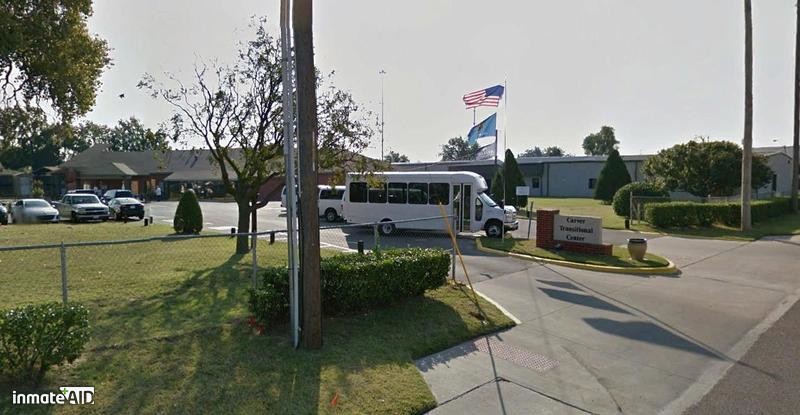Thank you for trying AMP!
You got lucky! We have no ad to show to you!
Connect with an Inmate
Carver Transitional Center - CoreCivic
Private Facility
Carver Transitional Center - CoreCivic is for Private Facility offenders have not been sentenced yet and are detained here until their case is heard.
All prisons and jails have Security or Custody levels depending on the inmate’s classification, sentence, and criminal history. Please review the rules and regulations for Reentry facility.
The phone carrier is Global Tel Link (GTL) - ConnectNetwork, to see their rates and best-calling plans for your inmate to call you.
If you are unsure of your inmate's location, you can search and locate your inmate by typing in their last name, first name or first initial, and/or the offender ID number to get their accurate information immediately Registered Offenders
You can support your loved ones at Carver Transitional Center - CoreCivic on InmateAid, if you have any immediate questions contact the facility directly at 405-232-8233.
Located in Oklahoma City, OK, Carver Transitional Center - CoreCivic operates as a private contractor with various government agency agreements providing state-minimum custody requirements. Programs are offered to all custody levels, including work release residents focused on reentry success. With a strong emphasis on rehabilitation, Carver Transitional Center - CoreCivic provides comprehensive educational and vocational opportunities. Onsite amenities include dietary, health, fitness, educational, religious, and recreational services. Regular inspections ensure compliance with government standards, ensuring the facility's continued operation.
Carver provides three nutritious meals per day, including a sack lunch provided to residents scheduled to leave the center for employment. Carver provides transportation for employment, medical appointments, and court and legal appointments.
What is "Community Corrections"?
"Community corrections" is a broad term used to describe numerous community-centric forms of correctional services, including residential reentry facilities, drug courts, treatment centers, and many others. Community corrections efforts focus on residential reentry centers, also known as "halfway houses." In Texas, Oklahoma, and Wyoming, our halfway houses and local, community partners provide men and women with the skills, guidance, knowledge, and resources necessary to successfully make the transition from incarceration to free society. We provide housing, food, counseling, training, and many other services to those in our care. Their goal is that they will experience productive, rewarding lives upon their return to society.
Why reintegration services matter?
Halfway houses are where offenders receive true help reintegrating into society.
Halfway houses lower recidivism. The national average for recidivism (the rate of released offenders who re-offend and are re-incarcerated within three years of release) is 50%. After successful completion of Avalon’s HH program, that rate drops to 12-18%.
Halfway house beds are the most cost effective beds. Not only do these facilities give offenders the best chance for successful reintegration into society, but they also save millions of dollars in State budgets.
In Oklahoma, the average cost of a medium security bed (2009) is $56 per day per inmate. A halfway house bed costs the State $35 per day. Additionally, offenders at our facilities pay an average of $10 per day from their earnings back into the Department of Corrections.
Halfway house residents are employed in the community. This is the number one way to lower recidivism and break the cycle of crime and re-incarceration. 97-98% of all inmates will eventually be back in our communities but only 13% of those released last year in Oklahoma were released from halfway houses.
Those inmates released from higher security facilities do not have jobs, savings or reintegration assistance when released and are much more likely to re-offend. One in 100 adults in the United States is behind bars.
BENEFITS OF COMMUNITY CORRECTIONS HALFWAY HOUSES:
• Reduces recidivism
• Reduces crime
• More cost-effective than building new prisons
• Reduces overcrowding
• Saves taxpayers millions of dollars in recurring incarceration costs
• Increases offenders' abilities to succeed
Our Mission: To break the cycle of crime by providing proven reintegration services.
They believe that change is possible.
Avalon Correctional Services, Inc. (Avalon) owns and operates community corrections centers, including halfway houses, which provide reintegration services for non-violent offenders serving the last 6 to 9 months of their sentences. Through our dedicated team and local partners, we provide our clients with reentry programs designed to successfully return them to their communities. Our clients leave our halfway houses with better life management skills, long term employment, and permanent housing — all important factors that reduce their likelihood to re-offend upon release.
Avalon has operated residential programs and residential treatment programs for over 29 years. Currently, they own and operate 10 residential halfway houses located in Texas, Wyoming, and Oklahoma. Together, these facilities provide residential reentry services including residential work release and residential treatment programs to more than 3,000 clients daily.









